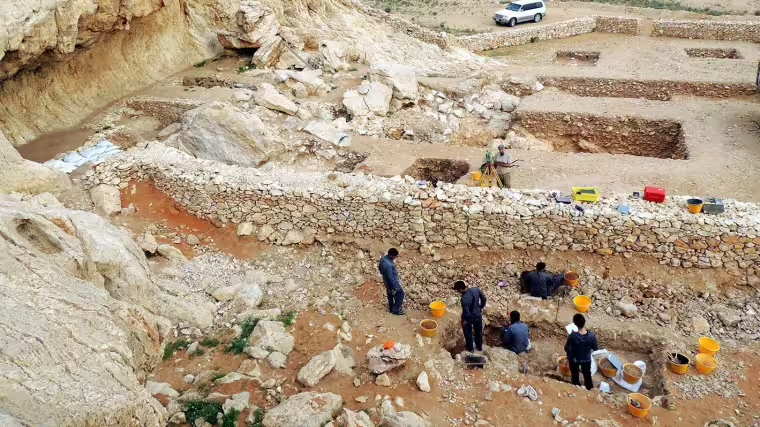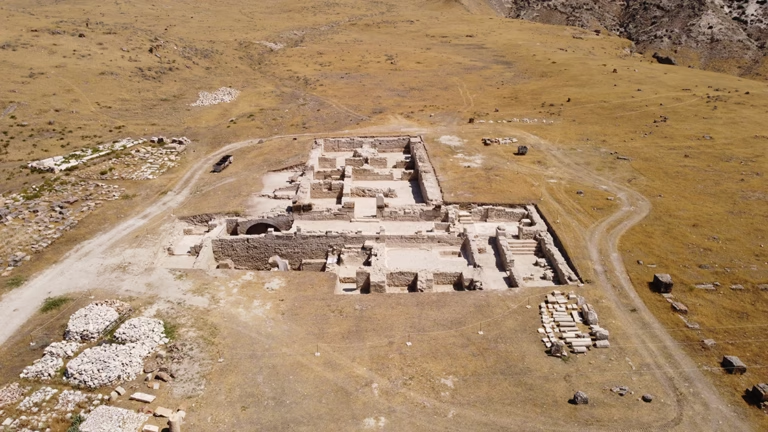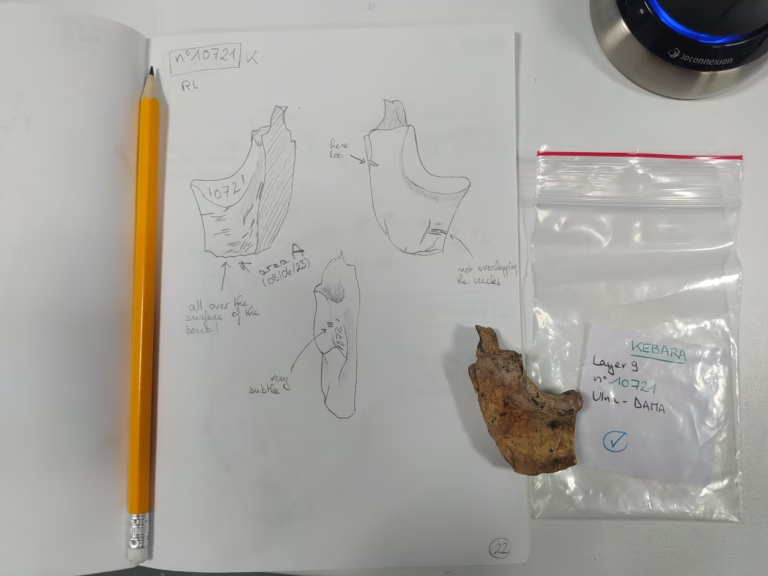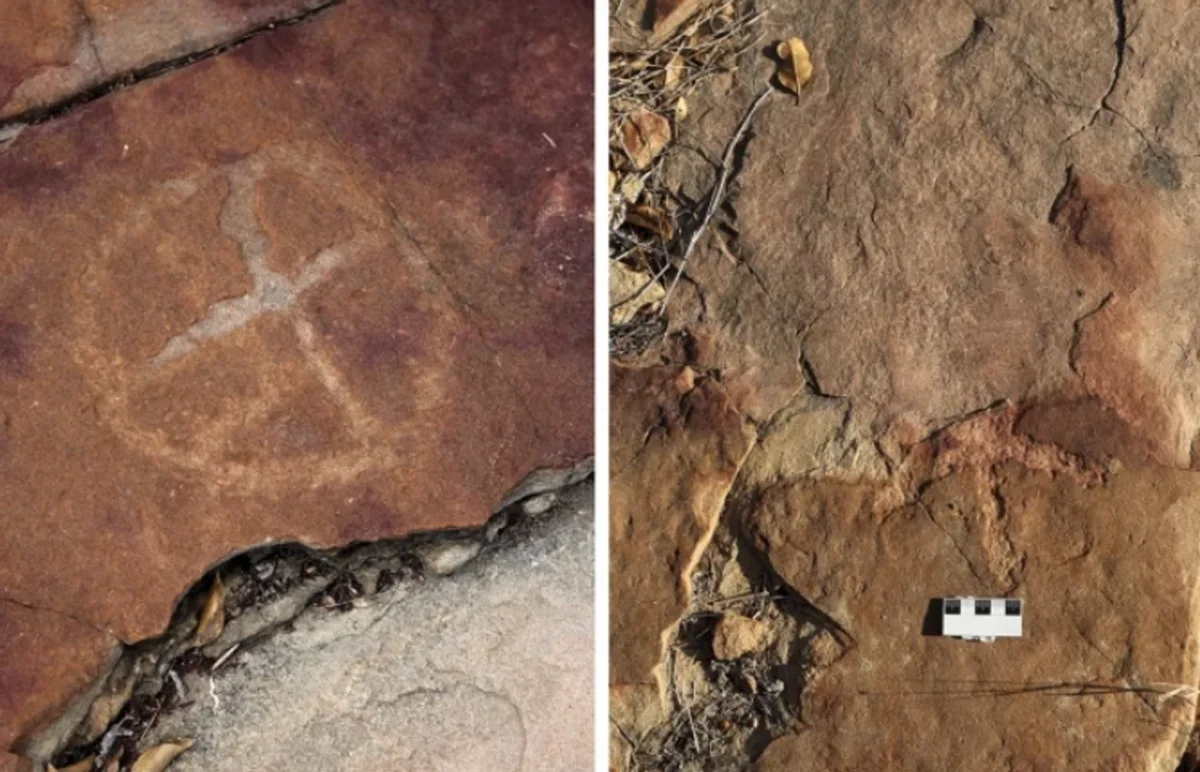Archaeological excavations at the Jebel Faya rock shelter in the Emirate of Sharjah have unearthed significant findings that shed light on human history. An international research team led by Knut Bretzke from Friedrich Schiller University Jena discovered stone blades dating back 80,000 years. This discovery marks the oldest known evidence of systematic stone tool production in the Arabian Peninsula, providing crucial insights into the technological development of prehistoric human communities in the region.
A New Perspective on the Prehistory of the Arabian Peninsula
This finding prompts a reassessment of the role the Arabian Peninsula played in the dispersal of Homo sapiens from Africa. Researchers have gained valuable clues about the tool-making techniques, migration routes, and settlement strategies of early humans.
Techniques Illuminating 80,000 Years of History
Analyses using luminescence dating techniques confirmed that the stone blades are approximately 80,000 years old. Dr. Bretzke emphasizes the significant climatic changes the region has undergone throughout history and how these changes affected human settlements. In particular, the shift from a favorable period with abundant water resources, which began around 130,000 years ago, to extreme arid conditions had profound impacts on human populations.
Cultural Differences and Shared Traditions
The findings indicate that northern and southern Arabia experienced distinct cultural developments during this transitional period, yet shared traditions in stone tool production reflect the complex interactions of human activities in the region. This differentiation provides valuable clues about the timing and routes of early human groups migrating from Africa to Asia.
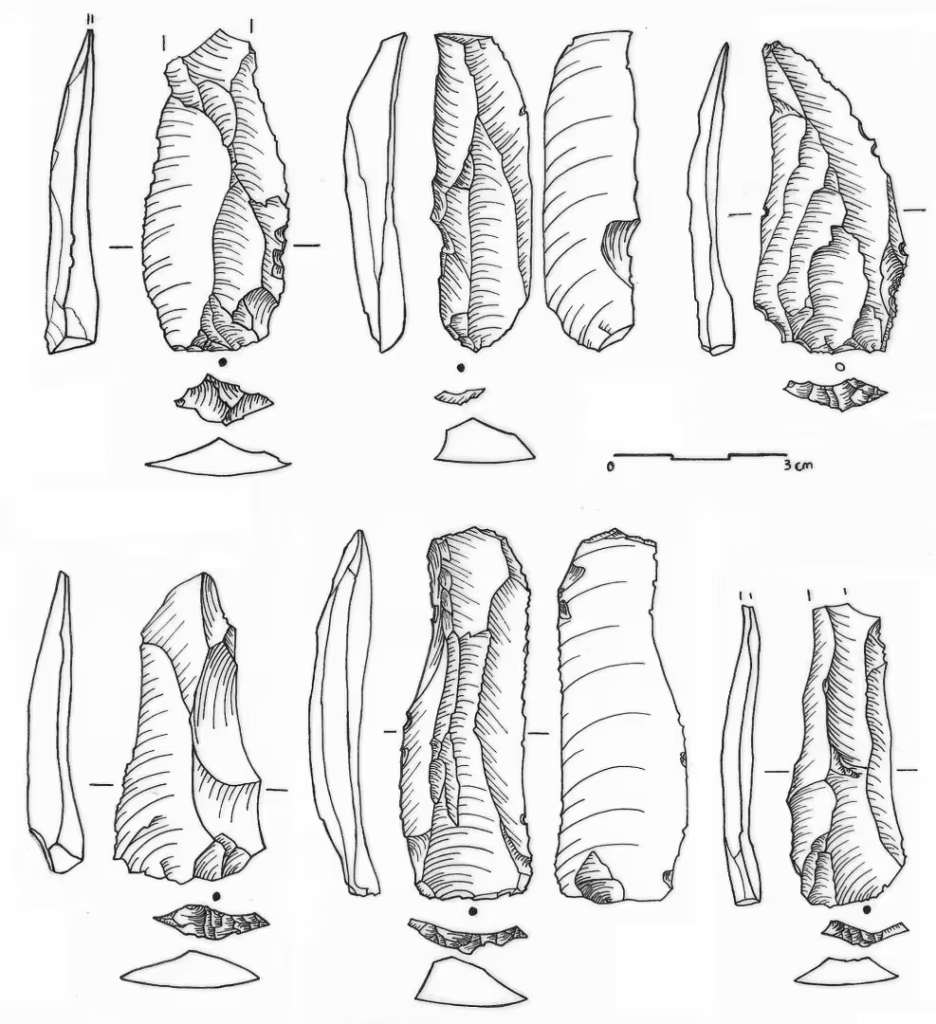
Waves of Homo Sapiens Dispersal
The research suggests that the global dispersal of Homo sapiens occurred in multiple waves. The Jebel Faya findings indicate that one of these migrations took place along the southern Arabian Peninsula approximately 80,000 years ago. However, the lack of Paleolithic human remains in the region limits the ability to conduct genetic analyses of past populations.
The Significance of the Jebel Faya Excavations
Excavations at Jebel Faya have yielded significant evidence of human activity dating from 210,000 to 10,000 years ago. Reaching depths of five meters, the excavations have revealed a variety of stone tools. However, the absence of fossilized remains makes it difficult to establish connections between these tools and specific genetic groups.
This interdisciplinary project, involving researchers from universities in Jena, Tübingen, and Freiburg in Germany, as well as Oxford Brookes University in the UK, continues to conduct excavations and analyses in collaboration with local authorities.
This discovery not only deepens our understanding of early human migrations but also highlights the complex and critical role of southern Arabia in the dispersal of Homo sapiens. As research progresses, archaeologists expect to gain more insights into the region’s ancient history and the adaptation strategies of early humans to environmental changes.
Friedrich-Schiller-Universität Jena
Knut Bretzke, Frank Preusser, Kira Raith, Gareth Preston, Seolmin Kim, Sabah Jasim, Eisa Yousif and Adrian Parker: Archaeology, chronology and sedimentological context of the youngest Middle Palaeolithic assemblage at Jebel Faya, United Arab Emirates, Archaeology and Anthropological Science,
Cover Image Credit: Jebel Faya archaeological site in the Arabian Peninsula.
Credit: Knut Bretzke
